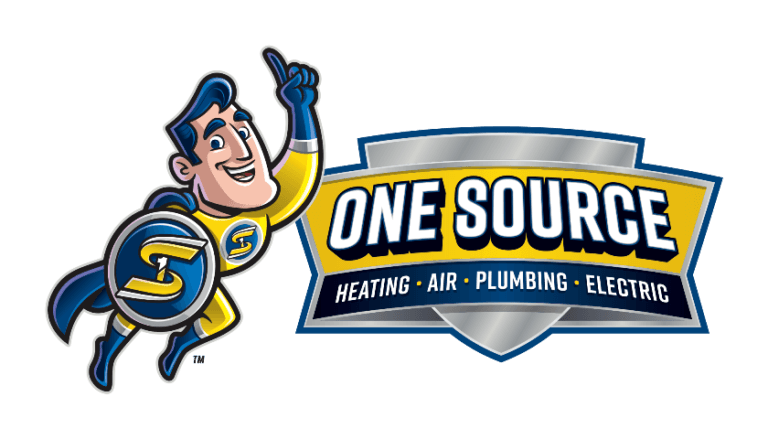ELECTRICAL, PLUMBING, HEATING AND COOLING HELP IN COLORADO SPRINGS, CO
WE EVEN PROVIDE SAME DAY SERVICE!
EXCEPTIONAL SERVICE FOR COOLING, HEATING, PLUMBING, AND ELECTRICAL NEEDS
HEATING Services
- Hassle-free heating replacement and installation
- Reliable heating system repairs
- Top-rated heating maintenance and tune-up
AIR CONDITIONING SERVICE
- Worry-free AC installation and replacement
- Complete air conditioning repairs
- Regular or annual AC maintenance
PLUMBING
- Emergency plumbing services
- Kitchen and bathroom plumbing
- Efficient pipe and drain repairs
- Plumbing fixture installations and repair
- Water heater services, and more
Ductwork
- Reliable ductwork repair
- Efficient air duct replacement
- Highly-rated AeroSeal duct sealing
- UV light air purification
- Indoor air quality testing, and more
Electrical
- Emergency electrical services are available 24/7
- Electrical panel replacement and upgrades
- Generator installation and repair
- Wiring and rewiring
- Smart thermostat installs, and more
PROUD TO BE A VETERAN OWNED BUSINESS
We work hard to honor the service of all veterans and to honor our clients, who are more than worthy of this service. Every day, we bring the same dedication, passion, and focus that we brought to our military service to the work we do for you. In fact, we see the work that we do at One Source as simply another way that we are striving to make your life better, every single day.
PROUD TO BE A VETERAN OWNED BUSINESS
At One Source, we are proud to be a veteran-owned business. We work hard to honor the service of all veterans and to honor our clients, who are more than worthy of this service.
We inherited our commitment to excellent service and customer satisfaction from our military service to our nation. Every day, we bring the same dedication, passion, and focus that we brought to our military service to the work we do for our Colorado Springs customers.
In fact, we see the work that we do at One Source as simply another way that we are striving to make your life better and your home a comfortable place, every single day.
Colorado’s #1 Home Repair Services
- We serve at the highest level
- We always choose the safest and most honest way to complete the job
- Integrity is our motto
When it comes to electrical, cooling, plumbing, or heating services, there is no better company in the area than One Source to get the job done right the first time! When you hire our technicians to see to the needs of your home, we will be right there with you. You can count on these characteristics from our Colorado Springs service company:
Award-Winning Home Service
Customers and service ratings cannot say enough good things about the quality of work our team provides for Colorado Springs homes. One Source is your one-stop shop for all of your home care needs. We provide repair, installation, maintenance, and replacement services for all components, including the HVAC system, furnace, plumbing, and electrical system. Our one-stop shop approach makes the life of the home owner all that is easier, making the home a comfortable place.
Certified & Skilled Repair Technicians
The One Source team of technicians is staffed with the highest caliber of certified and highly skilled professional technicians to provide the repair or installation services your home requires. Whether you have a burst plumbing pipe, a broken air conditioning unit, or boiler, our team covers it all. Professionalism is our highest priority, helping our customers feel safe and secure with our services.
Contact One Source Home Service Today!
Are you in need of home repair services for your home? Don’t hesitate to contact our team of experts today. Our team is available 24/7 to provide the services needed to help you back into the haven it is for your family.
Call us at (719) 204-1809 to learn about our free estimates and ask about the current deal we have running for new Colorado Springs customers.
SAME DAY AIR CONDITONING, HEATING, AND PLUMBING SERVICE
Any Service
$50 OFF

SERVING YOU AT THE HIGHEST LEVEL
Professional, Courteous, Friendly
Very professional, courteous, friendly, and very helpful. They explained a problem thoroughly regarding my AC so that I could make an intelligent and informed decision concerning it. They did an excellent job installing the furnace and we couldn’t be happier with it.
Virgil H.
One Source Home Service is my go-to company.
Our representative was Justin and you couldn’t ask for a more personable, knowledgeable, friendly person to deal with. I had spoken to several other dealers and it was not a hard choice to contract with them to do the job.
Gale S.
Very Professional
They did a great job. Very professional. They were very clean with the worksite and did everything to please
Anna W.
I would use them again in a heart beat!
Very professional and honest. The responded quickly and provided a competitive bid. Once selected they completed the job on time. I would use them again in a heart-beat!!!
Dean F.
Book an Appointment
Select the date, time and service that you would like to setup an appointment with One Source. No matter the hour, our HVAC and plumbing service teams will always be there to provide professional resolutions to the issues at hand.

We Value Your
Home
We Value Your Home
Our Colorado Springs service experts will always use shoe covers and floor-protecting tarps to protect your home. It’s our highest priority to leave your home in tidy condition.
We Value Your
TIME
We Value Your TIME
Before our HVAC or plumbing service team arrives at the appointed time, we will give you a call so you don’t have to waste your valuable time waiting or worrying. We are one of the most reliable companies in the industry for home repairs, installations, and maintenance services.
We Value Your Satisfaction
We Value Your Satisfaction
We agree to accept responsibility for your complete customer satisfaction with the materials we use and the workmanship and commercial services we provide. No matter the hour of the day or the weather in Colorado Springs, you will find a job well done in your home.
We Value Your
Safety
We Value Your Safety
One Source is fully licensed, bonded, and insured for your safety and protection. All team members carry ID cards so you can have peace of mind.







